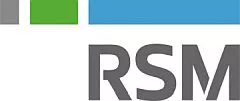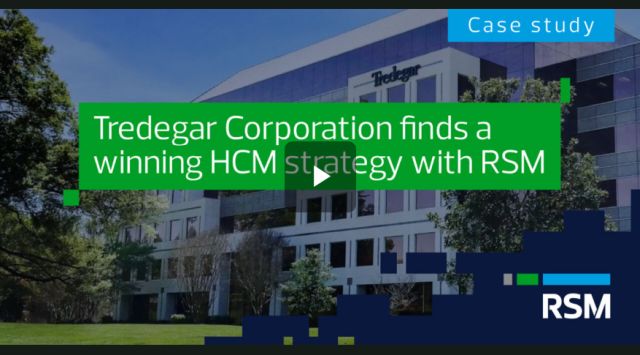Businesses face a variety of talent management challenges: a fast-moving regulatory environment, ever-changing compliance requirements, shifting workforce expectations, smaller teams struggling to do more with less and rapid technological advancements.
A broader, perennial need is making sure you have the right systems in place, running effectively, so you can manage costs and scale efficiently. Payroll and tax, compensation and benefits, and the evolving remote-hybrid work landscape all must be handled with confidence for accuracy and risk mitigation. Add in the need to adopt artificial intelligence to remain competitive and the stakes rise higher.
High stakes
What's at stake for companies if they can't successfully manage their global workforce? Consequences can include higher talent turnover, lacklustre competitiveness, missed business goals, a degraded employer brand, and the possibility of penalties and fees from regulatory infractions.
Chris Mueller, managing director of RSM's UKG consulting solutions team, sums it up, "You must get the HR and payroll function right—everything from hiring the right people, managing them correctly, compensating them accurately and providing the right benefits—to retain talent in the marketplace. It's basic to company success."
The value of a single-source trusted provider
Many companies engage multiple vendors for their human capital support services. But choosing a single provider can bring unique value. A skilled, integrated advisor who can assess your entire operating model will help you determine where you need to go and what actions to take, both with specific point solutions and broader fixes that address functional concerns.
When companies choose a single provider with experience across the full spectrum of employee functions, benefits can include:
- Rapid response: A deep bench means ease of finding the right person to address a need quickly.
- Succinct workflow: All teams have access to the same data points that drive decisions.
- Minimized risk: Reduced data transfer and deep regulatory knowledge drive proper compliance.
"We have the collective knowledge to help clients comply
and see what's upcoming, so they're aware of risk and not
blindsided by it, which can happen with siloed
providers."
Anne Bushman, Partner, RSM US LLP
- Stability and consistency: Maintaining a single provider from planning through implementation is efficient from a knowledge transfer and cost perspective.
"Once we identify an issue, we also bring the solution to
the table with the resources, the experience and the ability to
execute."
Lorry Twisdale, Principal, RSM US LLP
What to look for in a one-source workforce transformation advisor
When evaluating human capital, compensation and benefits, human resources transformation, HR technology implementation, payroll tax and compliance, and workforce management resources, a provider with several specific characteristics can provide consistency, efficiency and the best path to long-term success. Those key elements include:
- Depth of services: A deep bench of professionals and experience that includes tax advisory, comprehensive workforce consulting and audit can deliver tailored solutions and insights to help you achieve your goals.
- Quality of service: Everyone within your provider's interconnected teams and workflows should be motivated to provide the highest quality service because a unified approach generates faster, better results.
- Industry knowledge and resources: Access to analysts, advisors and solution technicians with detailed knowledge of sectors, trends and market outlooks can inform critical advisory, technology solutions and transformation work.
- Global footprint: Knowledgeable local resources help your company manage the unique jurisdiction needs of domestic and international expansion.
- Ability to tap both in-country and offshore resources: This flexibility helps your company adapt to the reality of a global workforce regardless of your physical locations.
- Experience with changing employee expectations: Your provider should understand generational considerations, technology-driven shifts and the virtual work environment. Harnessing this knowledge will help you adjust your talent acquisition strategies as growth and change occur.
- A holistic, proactive approach: A provider should bring together people, process and technology to create your envisioned future state. Being forward-thinking mitigates the risk of being unprepared when problems arise and avoids some of the pitfalls that come with growth or change.
- Clean processes: Accurate and reliable data and clean processes foundationally affect compliance, productivity, and organizational growth and stability.
"We help clients with process clean-up and compliance for
prior periods but also prospectively. Industry consolidation and
M&A activity mean cleaner records are more important than ever
because they can increase overall value at the time of a
sale."
- Peter Berard, Senior Director, RSM US LLP
- Optimal one-source provider fit: In many cases, an optimal provider has the just-right mix of the resources of a big firm with the personal service, relationship-driven model and "let's get this done" attitude of a boutique firm.
"Our clients are an extension of our team. We come to
understand and become part of their history. As a strategic
resource for their team, by having access to the right answer at
the right time, we empower them to function more confidently and
successfully in their business."
- Jennifer Southworth, Principal, RSM US
The takeaway
As companies grow, evolve and pivot, a key factor in success is managing their global talent puzzle to further their business. In many cases, working with the right human capital advisor can optimize and strengthen your talent management approach, addressing concerns and implementing best-practice strategies for ongoing success.
The content of this article is intended to provide a general guide to the subject matter. Specialist advice should be sought about your specific circumstances.









